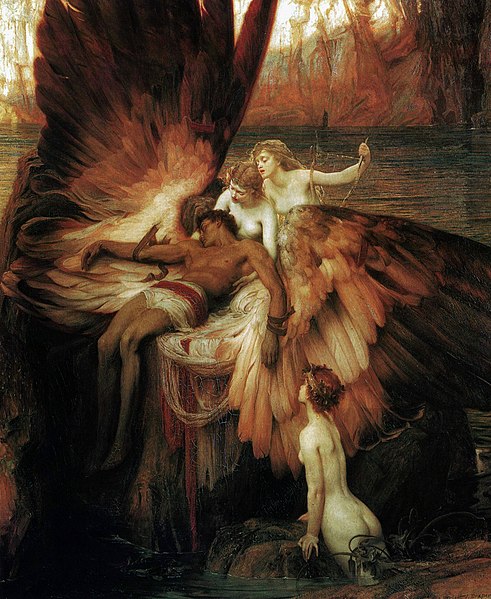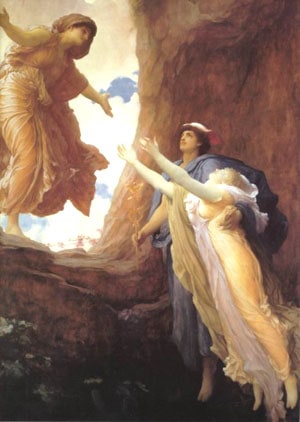 Biblical Figure:
Biblical Figure:Salome was the daughter of Herodias, who is married to King Herod. She danced before them before on Herod's birthday. He enjoyed her dancing so much that she was given one oath, that Herod would have to keep. Salome gave the oath to her mother, who asked for the head of John the Baptist. King Herod sent for John the Baptist to be imprisoned and beheaded.
Structure:
Salome is divided into four unequal stanzas, the first being 14 lines, then 9, then 9 again and finaly 4 lines long. There is no structural rhyme scheme although there are examples of internal rhyme throughout.
Closer Reading:
- "I'd done it before/ (and doubtless I'll do it again,/ sooner or later)" - here she is talking about being in a sexual relationship. The way she justifies the first sentence suggests she is unashamed of her nature. Brackets make the text conversational, as if the justification was added as an after thought for the reader's benefit.
- "woke up with a head on a pillow beside me - whose? - / what did it matter?" - Salome is careless and doesn't worry about what's happening to her. The way she only says "a head on a pillow" adds humour because she ends up with a head on a platter.
- "Good looking, of course," - that's what matttered to her; the looks of her partner.
- "a reddish beard..../with very deep lines around the eyes,/ from pain, I'd guess, maybe laughter," - the man's age is referenced. From Salome's frivilous attitude the reader suspects she is young (but certainly not naive.)
- "and a beautiful crimson mouth" - Crimson connotes danger and blood, perhaps foreshadowing the man's fate, but also sexual desire.
- "that obviously knew/ how to flatter..." - a man gives compliments to a lady in effort to get her into bed.
 - "Strange. What was his name? Peter?" - the way she asks questions in the middle of a line suggests she is talking to herself, but talking directly to the audience as well.
- "Strange. What was his name? Peter?" - the way she asks questions in the middle of a line suggests she is talking to herself, but talking directly to the audience as well. - "Simon? Andrew? John?" In the Bible, Peter and Simon are the same people, depending on the version, a clever way to show Salome's confusion. Simon, Peter, Andrew and John are all names of Jesus's disciples.
- "for tea, dry toast, no butter," - a life without luxury.
- "so rang for the maid." - Salome is a well off woman.
- "And, indeed, her innocent clatter/ of cups and plates/ her clearing of clutter,/ her regional patter/ were just what needed - " - the maid's innocence contrasts with Salome's. Rhyming words of 'patter' and 'batter'.
- "hungover and wrecked as I was from a night on the batter"
- "Never again!" She wants to change. The exclamation point shows determination.
- "I needed to clean up my act,/ get fitter" - Salome wants to better herself.
- "cut out the booze and the fags and the sex." - the sydentic list makes the list seem longer and more elaborate.
- "Yes." - she's reassuring herself that she's achieve her goal. "And as for the latter,/ it was time to turf out the blighter,/ the beater or biter,/" - Alliteration of 'b'
- "who's come like a lamb to the slaughter/ to Salome's bed." Simile, reference what happened to John the Baptist.
- "In the mirror, I saw my eyes glitter." - Internal rhyme.
- "I flung back the sticky red sheets" - Blood
- "and there, like I said," - conversational tone, "-and ain't life a bitch - " The taboo language fit well with Salome's promiscuous personality.
- "was his head on a platter"- Intertextuality between the poem and the Bible. Abrupt ending. Shocking.
Themes:
Salome is a poem that flips the gender roles of women and men. Salome is written as a very sexual woman, who can easily throw out of man. Unlike Mrs Faust, she is successful in becoming independant. She is like Little Red Cap in this way. Carol Ann Duffy is showing that woman are equal to men.



















